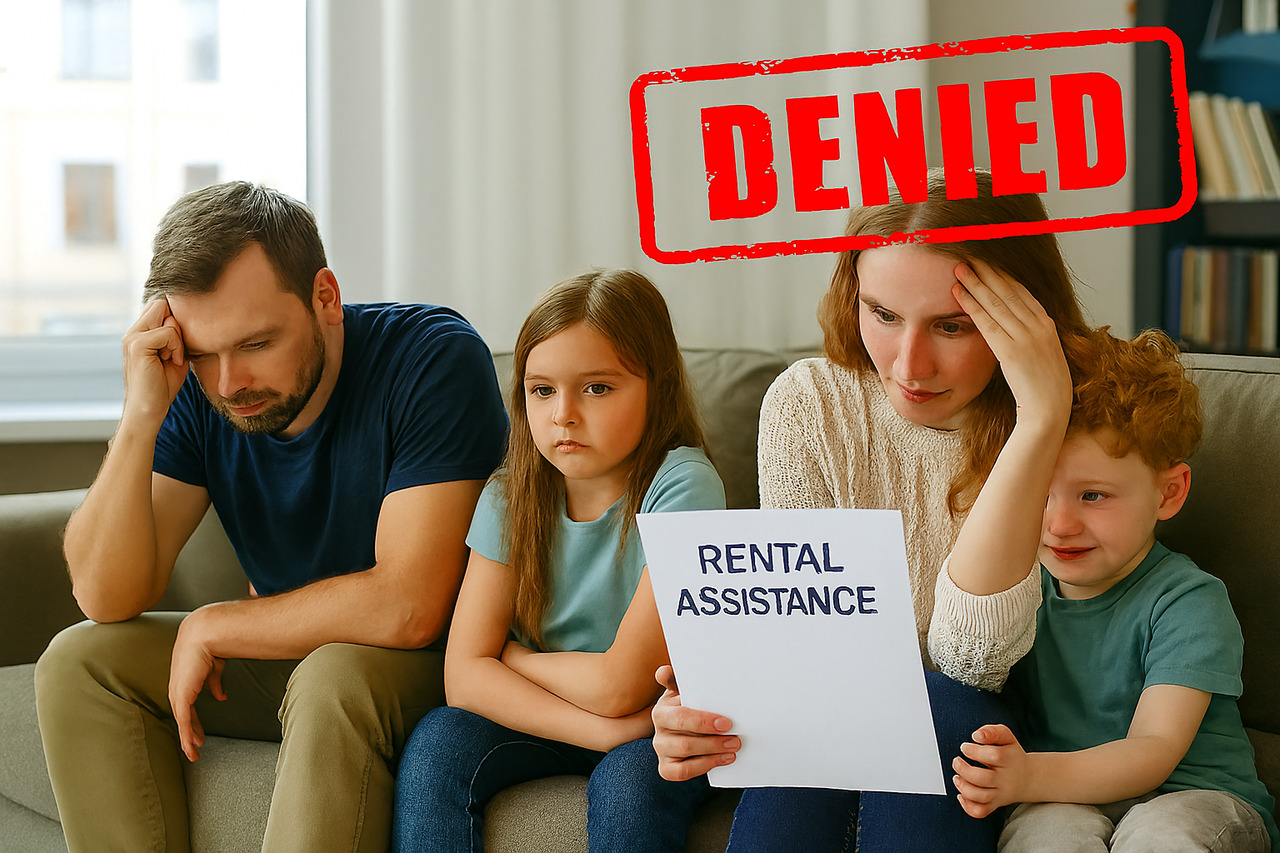Getting denied for rental assistance can feel like a setback, especially when rent is overdue and eviction seems close. But a denial doesn’t mean you’re out of options. In many cases, it’s the start of a different path. A path that requires persistence, documentation, and knowing where else to turn.
Review the Denial Notice Carefully
Start by understanding why your application was denied. Most programs are required to provide a reason, whether it’s missing paperwork, income ineligibility, or lack of available funds. Knowing the specific issue helps you decide what to do next.
If the denial was due to incomplete documentation, you may be able to resubmit with corrections. If it was based on income or eligibility criteria, you might qualify under a different program with broader guidelines.
Some denials happen automatically when funding runs out. In that case, you may be placed on a waitlist or encouraged to reapply when new funds become available.
Request a Review or Appeal
Many rental assistance programs allow applicants to request a review or appeal. This process gives you a chance to submit additional documentation, clarify your situation, or correct errors in your original application.
To begin, contact the agency that issued the denial. Ask about their appeal process and any deadlines. Some programs require written requests within a specific timeframe, while others may offer informal reviews by phone or in person.
When submitting an appeal, include:
- A copy of your original application
- The denial notice
- Any new or corrected documents
- A brief explanation of your situation and why the denial should be reconsidered
Even if the appeal doesn’t result in approval, it may help you qualify for other programs or strengthen future applications.
Look for Alternative Assistance Programs
If one program turns you down, others may still be available. Rental assistance is offered through a mix of federal, state, local, and nonprofit channels. Each has its own criteria and funding sources.
Consider checking:
- Local housing authorities for public housing or Section 8 waitlists
- Community action agencies for emergency rent and utility aid
- Faith-based organizations that offer one-time housing support
- Legal aid groups that help tenants negotiate payment plans or delay eviction
- State housing departments for programs not listed on federal portals
Calling 211 or visiting Consumer Finance’s housing help page can connect you with local experts who know what’s active in your area.
Talk to Your Landlord
If you’re behind on rent and assistance isn’t coming through, start a conversation with your landlord. Many landlords prefer working out a payment plan over pursuing eviction, especially if you’ve been a reliable tenant.
Explain your situation, share documentation of your denied application, and propose a short-term plan. This might include partial payments, a temporary rent reduction, or a delay while you apply for other aid.
Put any agreement in writing and keep copies for your records. Clear communication can buy time and reduce the risk of legal action.
Know Your Rights as a Tenant
Even if you’re denied assistance, you still have tenant rights. Some cities and states offer eviction protections, mediation services, or legal defense for renters in crisis.
For example, source-of-income discrimination laws in many jurisdictions prevent landlords from rejecting tenants solely because they use housing vouchers or public benefits. If your landlord refuses to accept rental assistance for discriminatory reasons, you may have legal grounds to challenge the decision.
Contact a local legal aid organization or your state’s housing department to learn what protections apply in your area.
Prepare for Future Applications
Use the denial as a learning opportunity. Keep a checklist of required documents, track deadlines, and save copies of everything you submit. If your financial situation changes, update your records and reapply when new programs open.
Housing counselors can help you prepare stronger applications and identify programs that match your household profile. You can find a HUD-approved counselor by calling 800-569-4287 or visiting HUD’s housing counseling directory.
Being denied rental assistance is frustrating, but it doesn’t mean you’re out of options. Appeals, alternative programs, and direct negotiation with your landlord can all help you stay housed while you regroup.


Leave a Reply